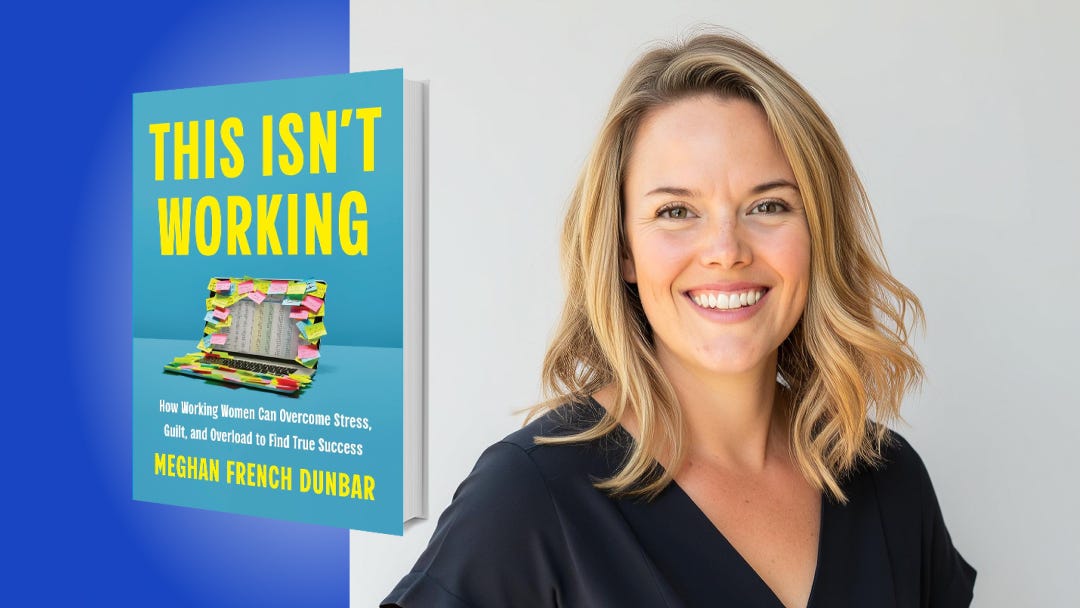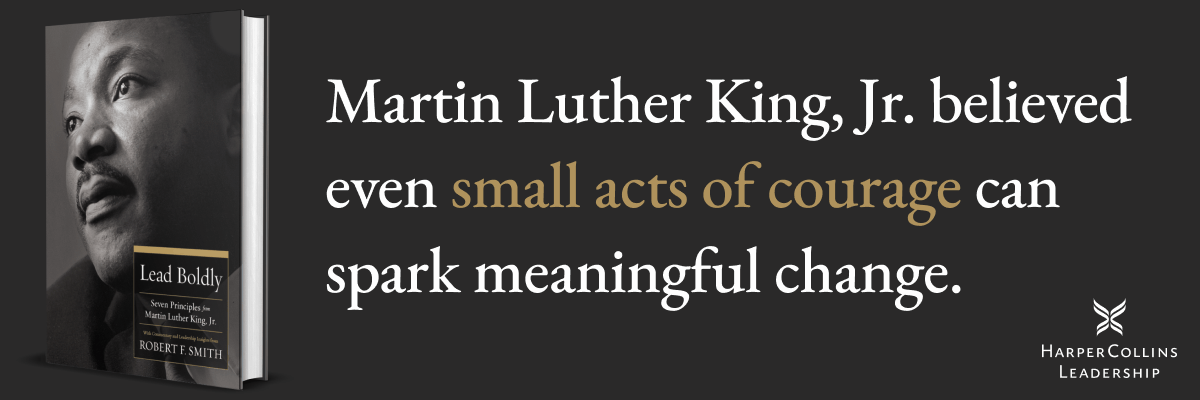Your Job Is Making You Sick
The way we work is broken. But it doesn’t have to stay that way.
Listen now on Apple Podcasts or Spotify:
Why does work have to be so…hard? Many Americans report on-the-job stress as if were a normal side effect of employment. But maybe the problem isn’t with us, but with work itself. In the new book (just out today) This Isn’t Working, author and workplace expert Meghan French Dunbar makes the case that our current systems of work are actively harming our health. Drawing on research and interviews, she offers a radical but compassionate rethinking of how we define success, lead teams, and take care of ourselves on the job. Pick up a copy on Amazon or read Meghan’s key insights below.
1. Business-as-usual is harming us more than we realize.
Ask nearly any working adult how they’re doing today and you’ll likely hear: “Overwhelmed,” “Busy,” “Exhausted,” or “Stressed.” Overwork and overload have become the norm. In fact, most of the nearly 4 billion people in the global workforce now experience some form of physical or mental health challenge due to the way we work.
And while we’ve normalized stress and burnout, that doesn’t make these issues harmless. Chronic stress is linked to things like cardiovascular disease, high blood pressure, sleep disorders, weakened immune systems, and autoimmune conditions. It’s fair to say, the way we’re working is literally killing people.
We often treat these issues like personal problems—fixable with better time management, meditation apps, or the occasional day off. But the real issue isn’t our coping skills. It’s the system itself. People are suffering because of how we’ve designed the very system they work in. Until we change the way we do business, these issues will only get worse.
People aren’t burning out because they’re weak. They’re burning out because the system is broken.
2. There IS a better way to work.
Improving the way we work isn’t just good for people, it’s good for business. The workforce is changing. New generations are increasingly unwilling to sacrifice their well-being for a paycheck. Old playbook workplaces that prioritize profit over people will soon be a thing of the past. Research already shows toxic workplaces are the number one predictor of employee turnover.
Companies that have built exceptional workplace cultures are the answer, and these companies are thriving as a result. One such company is Torani Syrups. For over 30 years, CEO Melanie Dulbecco has rejected hustle culture and built a company rooted in autonomy, collaboration, and building opportunity for everyone on their team. The results?
A 90% retention rate
Turnover under 7%
Employee tenure 40% above the national average
Zero layoffs in the company’s 100-year history
Over 20% annual growth for three decades in a row
Thriving workplaces aren’t just good for people. They’re good for business.
This week, Book of the Day is brought to you by Lead Boldly, a transformative read that marries the timeless wisdom of Dr. Martin Luther King, Jr. with practical leadership strategies. This remarkable guide offers a deep dive into the principles that defined Dr. King’s impactful leadership and provides actionable insights to incorporate his visionary ideals into your own leadership journey. Get your copy today.
3. The success myth might be making you miserable.
Many high-achievers have followed the traditional success playbook: chasing titles, hitting targets, over-producing. Research shows this version of success rooted in extrinsic motivation is both unsustainable and unfulfilling.
Through hundreds of interviews with thriving leaders, the ones who are both successful professionally and deeply content, they all define success differently than the norm. They focus on intrinsic motivators—like having purpose, continual learning, and optimizing their quality of life—rather than tying their self-worth to extrinsic factors like status or salary.
True flourishing comes when we stop chasing external validation and start defining success based on our intrinsic motivations.
4. Every day actions matter more than you know.
We often underestimate the emotional ecosystem of work, but research shows the quality of our relationships with our coworkers are just as important to our mental health as those with friends and family. In fact, 70% of employees say their manager has as much of an impact on their mental health as their spouse does.
Regardless of your title, you impact the people you work with, for better or for worse. This dynamic is a powerful responsibility—and a profound opportunity. Every day, you have micro-agency to build a better workplace. Lead with presence and authenticity. Set healthy boundaries. Speak your truth with clarity and grace.
You model to others how they should treat you and how they should treat each other, so be intentional every day about how you show up.
5. All systems will break eventually—including yours.
Overwork. Hustle. Self-sacrifice. Never taking time off. These behaviors might bring short-term results or make you feel successful, but they always come at a cost. Trust me, all systems have limits, including yours.
You can either ignore your limits, sacrifice yourself, and ignore your well-being until you eventually break down and are forced to change, or you can prioritize your well-being along the way and optimize your best leadership and sustain it over the long term. I can tell you from experience: The latter is a much healthier, happier, and more effective way to go. So start now. Boundaries, rest, and accepting help are leadership skills.
The best way to optimize your performance and leadership is actually by prioritizing your well-being.
This Week: Member Book Chat
Our next Members-Only Book Chat will be on August 7th at 11am ET. We will be discussing Eric Topol’s book Super Agers: An Evidence-Based Approach to Longevity.
If you’re not already a paid subscriber, join us below to see the RSVP link and claim your spot!








